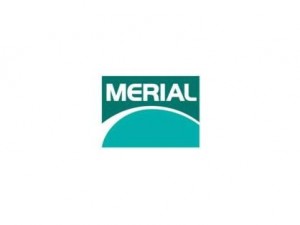FDA Warns Manufacturers of Equine Stomach Ulcer Products
Merial Press
In late October, the U.S. Food and Drug Administration issued warning letters to multiple marketers of products claiming treatment of equine stomach ulcers, including:
- Horse Gold, Inc. – GastroMax3
- HorsePreRace – Omeprazole Oral Paste, Omeprazole/Rantidine Oral Paste
- Tri-Star Equine – Gastrotec
- Douglas J. Gordon, Teton Equine – UlcerCure OTC
- Cox Veterinary Laboratory, Inc. – Gastroade Xtra
- Ceva Animal Health Pty Ltd. – Omoguard Paste
- Abler, Inc. – AbGard, Abprazole, Abprazole Plus, Abler Omeprazole
- Multivet USA, Inc. – Gastro37 OTC
The FDA admonished all of them for promoting their products “for use in the mitigation, treatment or prevention of disease in animals.”1-8 When companies market their products for such use, they fall under the Federal Food, Drug and Cosmetic Act (FD&C Act) and therefore are considered drugs.None of these companies have obtained FDA approval of their products, meaning the products have not been evaluated for safety, effectiveness or quality.9
“The FDA plays a significant role in ensuring the drugs marketed to consumers are safe, contain the proper amount of the active ingredient and achieve the intended result,” says Rebecca Peskin, senior equine manager, Merial. “With products that have not been through the rigorous FDA approval process, horse owners really don’t have any way of knowing exactly what they are getting.”
One of the products tested by the FDA, Gastroade Xtra, did not contain the amount of the active ingredient advertised on the label. In fact, it only contained 36.3 percent of the label claim.5 Another, Omeprazole Oral Paste, was tested and found to be sub-potent at just 68.1 percent of the label claim.2
This isn’t the first time illegally marketed omeprazole products have been found to be sub-potent. A previously published study conducted by the University of California-Davis also found wide discrepancies in omeprazole content versus label claims.10
According to Peskin, this lack of potency should be a serious concern to horse owners. “When a horse shows clinical signs of ulcers, and an owner gives that horse a medication that does not contain an appropriate amount of active ingredient, the horse is not likely to get better. Not only can it be a waste of time and money, but it could also have serious consequences for the health of that horse.”
There are, in fact, two products that have been proven to be safe and effective for the prevention and treatment of equine stomach ulcers, ULCERGARD® (omeprazole) and GASTROGARD® (omeprazole).11,12
Consumers should be vigilant when it comes to treating their horses with any product – which means they should invest time researching whether or not a drug has received FDA approval. One way is by looking on the package for a six-digit New Animal Drug Application (NADA) number and the statement “Approved by the FDA.” In the case of generic drugs, look for the Abbreviated New Animal Drug Application (ANADA) number.
Another option is to go to AnimalDrugs@FDA and search the database.
“The equine drug marketplace can be overwhelming, as there are a lot of products available and some of the manufacturers of these products make claims that simply haven’t been proven. There is a process that any legitimate manufacturer goes through – it takes time and there are fees involved, but it’s the law and it’s the right thing to do for the health of horses,” says Peskin.
To help educate consumers about the types of drugs, the FDA approval process and identifying FDA-approved drugs, Merial developed the website www.equinedrugfacts.com. The site also has templates that consumers can submit to the appropriate authorities if they feel they have been misled by a product manufacturer.
IMPORTANT SAFETY INFORMATION
ULCERGARD can be used in horses that weigh at least 600 pounds. Safety in pregnant mares has not been determined.
Caution: Safety of GASTROGARD in pregnant or lactating mares has not been determined. For full prescribing information, go to:
http://www.ulcergard.com/treat-with-gastrogard/product-label/Pages/default.aspx.
About Merial
Merial is a world-leading, innovation-driven animal health company, providing a comprehensive range of products to enhance the health, well-being and performance of a wide range of animals. Merial employs approximately 6,200 people and operates in more than 150 countries worldwide with close to $2 billion of sales in 2013.
Merial is a Sanofi company.
For more information, please see www.merial.com.
®ULCERGARD and GASTROGARD are registered trademarks of Merial.
©2014 Merial Limited, Duluth, Ga. All rights reserved. EQUIUGD1443 (11/14)
1FDA correspondence to Horse Gold, Inc. 10/29/2014. Available at:
http://www.fda.gov/ICECI/EnforcementActions/WarningLetters/2014/ucm421146.htm. Accessed November 6, 2014.
2FDA correspondence to Horse PreRace. 10/29/2014. Available at:
http://www.fda.gov/ICECI/EnforcementActions/WarningLetters/2014/ucm421133.htm. Accessed November 6, 2014.
3FDA correspondence to Tri-Star Equine 10/29/2014. Available at:
http://www.fda.gov/ICECI/EnforcementActions/WarningLetters/2014/ucm421167.htm. Accessed November 6, 2014.
4FDA correspondence to Douglas J. Gordon 10/29/2014. Available at:
http://www.fda.gov/ICECI/EnforcementActions/WarningLetters/2014/ucm421214.htm. Accessed November 12, 2014.
5FDA correspondence to Cox Veterinary Laboratory, Inc. Available at:
http://www.fda.gov/ICECI/EnforcementActions/WarningLetters/2014/ucm422544.htm. Accessed November 12, 2014.
6FDA correspondence to Ceva Animal Health Pty Ltd 10/29/2014. Available at:
http://www.fda.gov/ICECI/EnforcementActions/WarningLetters/2014/ucm422549.htm. Accessed November 12, 2014.
7FDA correspondence to Abler Inc 10/29/2014. Available at:
http://www.fda.gov/ICECI/EnforcementActions/WarningLetters/2014/ucm422545.htm. Accessed November 12, 2014.
8FDA Correspondence to Multivet USA, Inc. Available at:
http://www.fda.gov/ICECI/EnforcementActions/WarningLetters/2014/ucm421707.htm. Accessed November 12, 2014.
9American Association of Equine Practitioners. Equine Veterinary Compounding Guidelines. Available at: http://www.aaep.org/custdocs/drug_compounding_guidelines.pdf. Accessed November 12, 2014.
10Stanley SD. Knych HK. Comparison of Pharmaceutical Equivalence for Commercially Available Preparations of Omeprazole. AAEP Proceedings 2011. Vol. 57:63.
11ULCERGARD product label.
12GASTROGARD product label.











